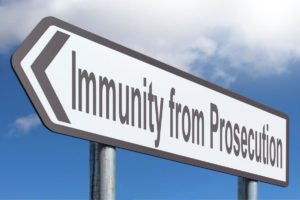Safe Harbor Immunity Results in Dismissal
Client was a Penn State student that had been drinking vodka with friends in his University Park dorm room. A sober friend became concerned about Client’s well being because of the excessive consumption of hard liquor. The friend called 911, provided her name to the 911 dispatcher, and remained in the room with Client. EMTs responded to the call for medical assistance, and the police also arrived to provide support. Client was transported via ambulance for an alcohol overdose.
Safe Harbor Immunity Argument
Client was surprised to receive a citation in the mail for a violation of 18 Pa.C.S. § 6308, which is commonly referred to as Underage Drinking. Client felt that he was immune from prosecution under Pennsylvania’s new Safe Harbor protections contained in 18 Pa.C.S. § 6308.1, which became effective at the end of November in 2018. I reviewed the fact pattern with Client and believed  that his case fell under the Safe Harbor protections, meaning he should not be prosecuted for Underage Drinking. Client pleaded not guilty, and the case proceeded to a summary trial before a State College judge.
that his case fell under the Safe Harbor protections, meaning he should not be prosecuted for Underage Drinking. Client pleaded not guilty, and the case proceeded to a summary trial before a State College judge.
The Safe Harbor law states that the person that needed medical attention is immune IF the caller is entitled to immunity, so Client was only entitled to immunity IF the caller was also entitled to immunity. Therefore, at the summary hearing, the defense presented testimony from the caller to show that she was entitled to immunity. The officer argued that Client could be prosecuted for Underage Drinking because the caller did not need immunity because she had not been drinking. The officer’s rationale was that because the caller did not need immunity, then Client was not entitled to immunity.
The defense argued that the legislative intent in passing the Safe Harbor law was to encourage underage drinkers to call for medical assistance for intoxicated friends without getting themselves into trouble. The problem with this argument is that a prior immunity law already protected the caller from prosecution for Underage Drinking. The change to the law expanded the immunity protections to the person suffering from the alcohol overdose, so the legislative intent was clearly to protect the person needing medical assistance too. The legislature made a value judgment and believed that the promotion of health and safety was more important than pursuing a prosecution for a minor offense like Underage Drinking.
The judge agreed with the defense and dismissed the Underage Drinking charge. The expungement process will allow Client to have the dismissed charge removed from his records.
State College Underage Drinking Lawyer
Regrettably, this is another example of the importance of retaining an experienced defense lawyer. Laws can often be interpreted in different ways by different people. If everything case were clear cut or black and white in the law, then we would not have court hearings and trials. An experienced lawyer knows the proper legal arguments to make to obtain the best results for a client.
